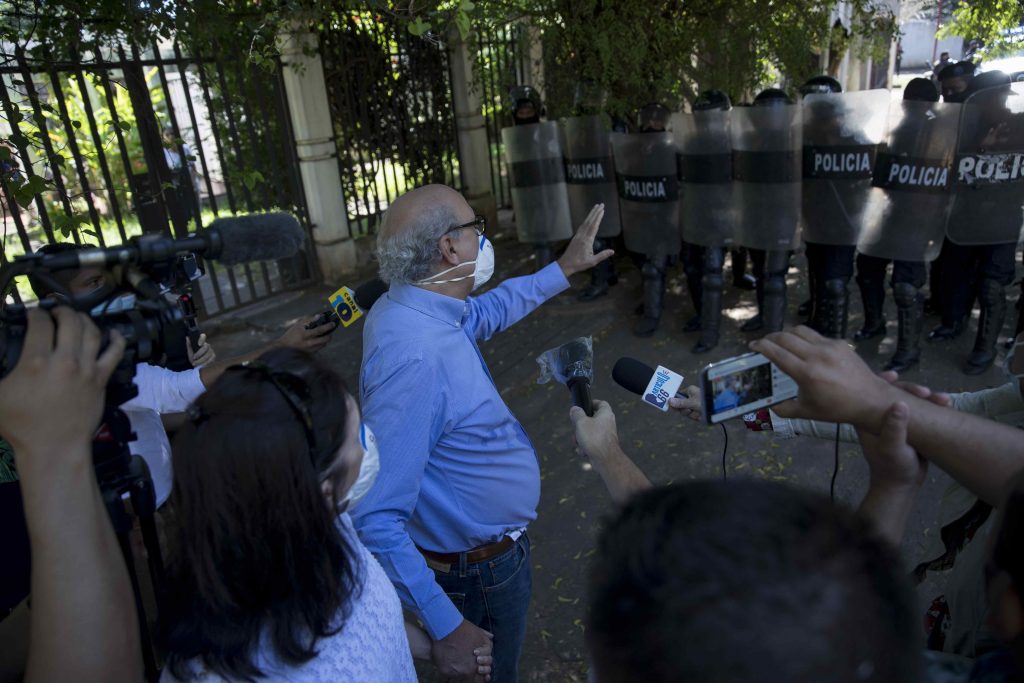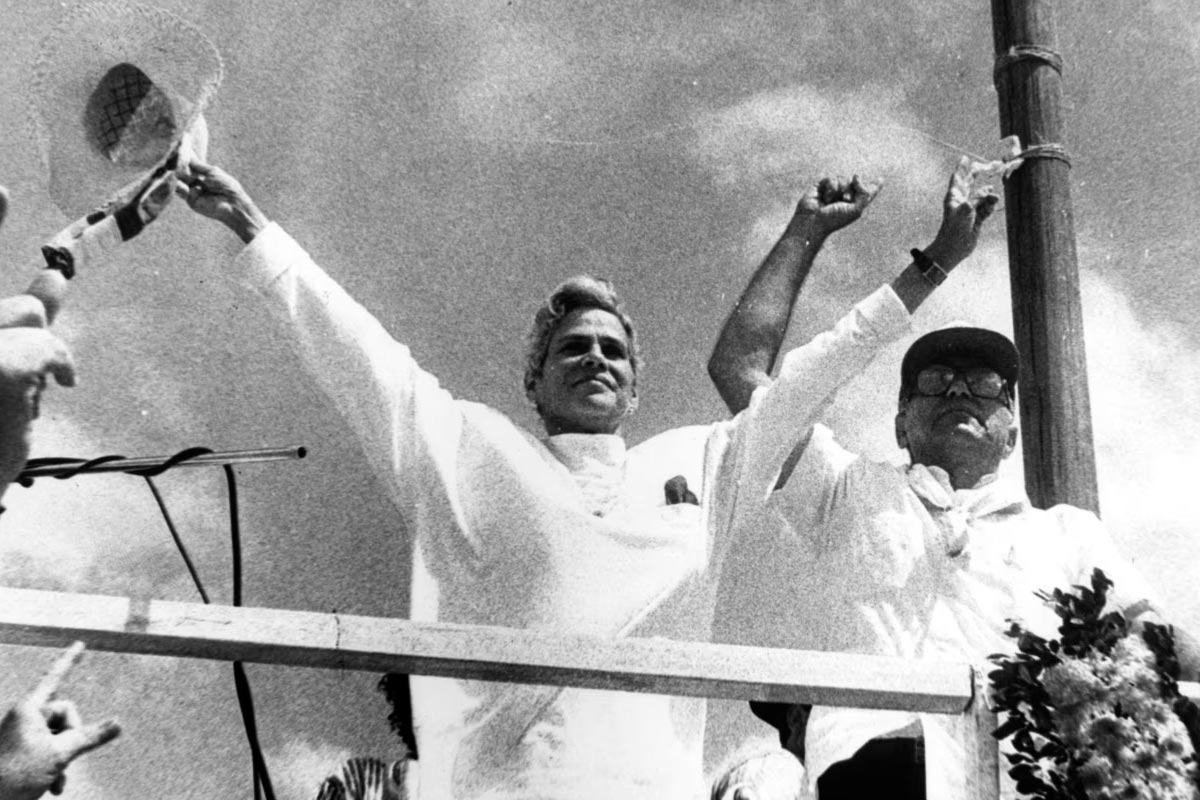Violeta Barrios de Chamorro, former president of Nicaragua, was transferred this Tuesday, October 17, to Costa Rica, where she will be under the care of her family, most of them exiled as a result of the political persecution of the Daniel Ortega and Rosario Murillo regime since the political crisis of April 2018.
The Chamorro Barrios family informed through a statement that Violeta was transferred this Tuesday by air from Managua to San José, the Costa Rican capital, where she will be cared for with “the love of her family, along with health personnel and specialized doctors.”
In a statement, the family reported that since September 2018, when she suffered a stroke, doña Violeta remained at her residence in Las Palmas, in Managua, “under the care and love of her family, accompanied by specialized health personnel.”
Persecution against the Chamorro family

Since the beginning of the 2018 political crisis, the persecution of the Ortega-Murillo regime against the Chamorro family has increased. Two of their children, Cristiana and Pedro Joaquín were imprisoned in 2021 for showing intentions to run for the Presidency, until they were eventually banished in February 2023.
Her other son, Carlos Fernando, has been exiled twice, most recently two years ago. Violeta’s three sons have been denationalized and confiscated. The dictatorship also confiscated, in August 2021, the facilities of the newspaper La Prensa, of which doña Violeta was a partner and at some point headed the newspaper.
In June 2019, during his first exile, her son, Carlos Fernando Chamorro, told La Prensa that the hardest thing about leaving Nicaragua was not being able to be with his mother, because “she is in a delicate, reserved health condition”.
“I would like to be with her (…) And this absence, this distance, is very painful,” added Chamorro. When he returned to the country five months later, the journalist said that the first thing he was going to do was to hug and kiss his mother. However, less than two years later, Carlos Fernando went into exile again because the regime wanted to imprison him.
Claudia Lucía Chamorro is the only one of Violeta’s four children still living in Nicaragua.
The Chamorro Barrios family thanked “deeply” the doctors, health personnel and service workers who took care of Violeta during all the years she was in Nicaragua. “We thank all the people who always accompany her with their prayers and keep an eye on her health condition, which continues to be delicate, but stable,” the statement concluded.
“The president of peace”
Doña Violeta Barrios de Chamorro was President of Nicaragua between 1990 and 1997. Despite the fact that months before the polls predicted that the Sandinista Front would win the elections, since it still enjoyed high levels of popularity, the reality was that Barrios de Chamorro ended up achieving 54% of the votes against Daniel Ortega’s 41%.
Her government was the first to emerge from democratic elections after decades of civil wars and a frustrated (Sandinista) revolution. She was the first woman to govern in the American continent.
Her presidential term is noted for achieving a peaceful transition, not exempt from upheavals and armed uprisings. That is why she is known as “the president of peace”. Daniel Ortega himself emphasized in an interview that the most positive aspect of Barrios de Chamorro’s administration was the reconciliation and depolarization of the country. “Who knows what would have happened here if the president had been another of those who were mentioned as candidates for the presidency and disputed it with Doña Violeta in UNO (National Opposition Union)?” said Ortega.
She was married to Pedro Joaquín Chamorro, journalist and director of the newspaper La Prensa, who was shot to death on January 10, 1978. Pedro Joaquín became the “martyr of public liberties”. The couple had four children: Pedro Joaquín, Claudia Lucía, Cristiana and Carlos Fernando.





